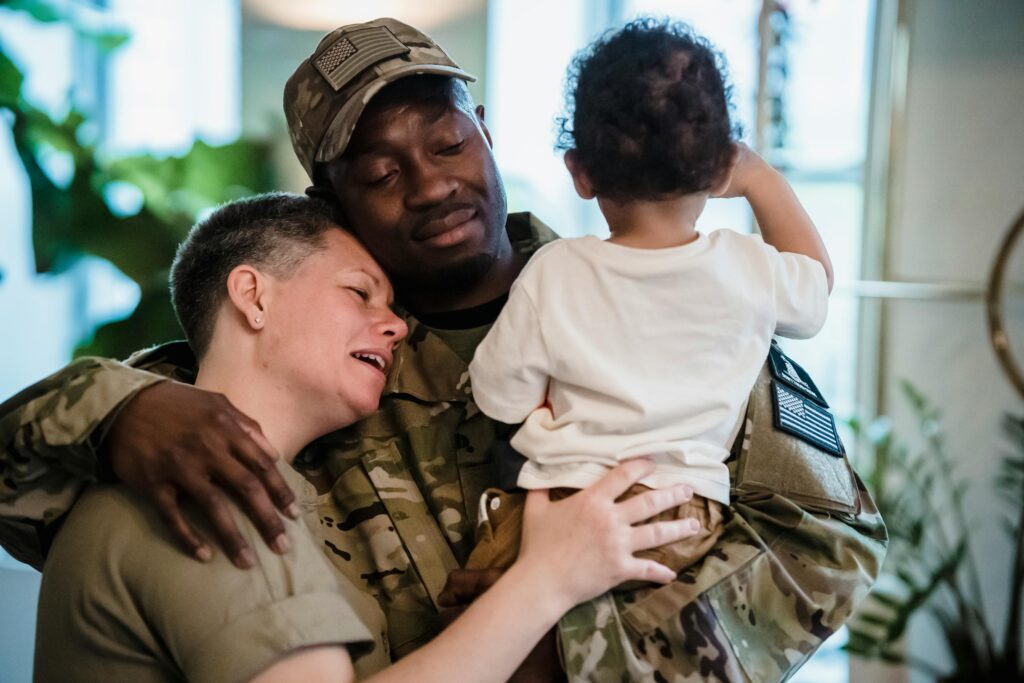Miltary Parole in Place
Military Parole in Place (PIP) is available for certain family members of current and former United States armed forces personnel.
Schedule a consultation with one of our immigration attorneys.
As of 2013, Non-citizen family members can apply for a green card without needing to first leave the United States.
Normally, entering the U.S. unlawfully would make you ineligible to obtain an immigrant visa. Such individuals often have to leave the country and go through consular processing. Leaving the country after entering unlawfully is a huge risk, as it may subject you to a three- or ten-year bar. However, if you are an immediate relative of a U.S. citizen that has served in the military, parole in place can enable you to apply for a green card without leaving the country.
Family members of active duty, reservists in the Selected Reserve of the Ready Reserve, and veterans of the U.S. armed forces who are present without admission may be eligible to receive parole in place. Parole in place is a discretionary benefit available on a case-by-case basis. If granted military parole in place, an individual may seek work authorization and apply to adjust status to lawful permanent resident if otherwise eligible.
Who Qualifies for Military PIP?
The immediate families of U.S. military members, active or veteran, may be eligible. To be eligible for PIP, the current U.S. citizen and member of the military must be one of the following:
-An active duty member of the U.S. armed forces
-A current member of the Selected Reserve of the Ready Reserve
-A person who previously served in the U.S. armed forces or Selected Reserve of the Ready Reserve
The immediate family member who is seeking parole in place must be the following relation to military personnel:
-A spouse
-A parent
-An unmarried child under the age of 21
Approval is Discretionary:
The United States Customs and Immigration Service (USCIS) can reject a parolee’s green card application if there is evidence that they are inadmissible, due to a serious criminal record, national security concerns, or other issues.
Still Unsure?
If you’re unsure whether your family is eligible for military parole in place, contact the Vasquez, Asker & Rojas Law Group. We will listen to your story, assess your situation, and explain your family’s immigration options. Our team has extensive experience handling military immigration issues and would love to speak with you.
Do you or a loved one qualify for Military Parole-in-Place?
Let our experienced immigration attorneys guide you through the PIP process.
Frequently Asked Questions
In order to apply for PIP, you must fill out the Form I-131 Application for Travel Document. You will also need the following documentation:
-Evidence of family relationship to the U.S. citizen military service member (copy of a birth or marriage certificate)
-Evidence the U.S. citizen family member is either an active duty member of the U.S. armed forces, in the Selected Reserve of the Ready Reserve, or previously served in the U.S. armed forces or the Selected Reserve or the Ready Reserve (photocopy of the military identification card)
-Two identical, color, passport-style photographs of the non-citizen applicant
-Evidence of any favorable discretionary factors to share with USCIS (letters from community leaders or teachers showing your involvement in volunteer activities, education, or your children’s education)
If your application for Parole in Place is approved, you will have a valid I-94 and will then be deemed “inspected and admitted or paroled” into the United States. Thus, the I-94 effectively makes you eligible to adjust your status under INA § 245(a). This means that you will be able to file a family-based I-485 and obtain your permanent residence without leaving the U.S.
Parole in Place applicants for adjustment of status must comply with all basic requirements as any I-485 applicant would, including:
-I-130, Petition for Alien Relative
-I-485, Application for Adjustment of Status
-I-864, Affidavit of Support
-I-693, Medical Exam
We’re here to assist you with experience and compassion.


